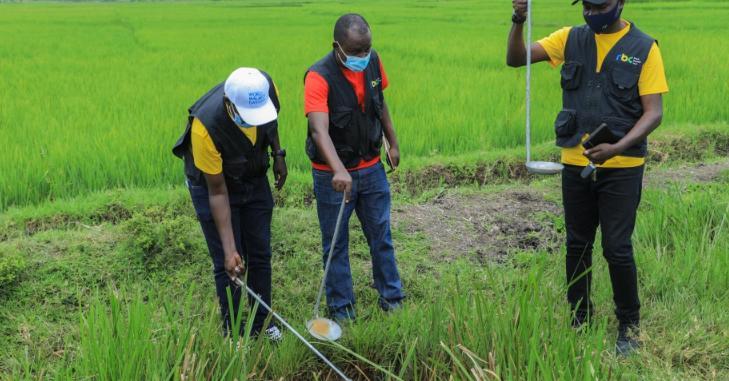Africa-Press – Rwanda. Rwanda’s strides in the containing the latest surge of malaria cases as reported by Rwanda Biomedical Centre (RBC) is commendable. The recent report highlighting that the country’s new malaria control strategy has detected 30% more previously unreported cases is a testament to the effectiveness of proactive, data-driven health interventions.
This significant increase in detection means that more people are receiving treatment earlier, a crucial factor in reducing the burden of this deadly disease.
We must commend the Ministry of Health, its partners, and, notably, the dedicated Community Health Workers (CHWs) for this breakthrough. Their concerted efforts are yielding visible results, and the leadership in public health deserves recognition. However, even as we celebrate this achievement, we must balance our optimism with caution and resolve.
The truth remains that malaria continues to claim lives. The increased detection rate is not only a sign of progress but it is a stark reminder that malaria is still very much present and continues to spread silently in our communities.
It is not time to rest on our laurels. Now, more than ever, we must sustain and amplify the fight against this preventable and curable disease. CHWs, who are strategically positioned throughout Rwanda’s urban and rural settings, must be further mobilised and equipped with the tools, training, and support needed to become even more effective first responders in malaria prevention and treatment.
Their grassroots presence makes them ideal agents in promoting early detection, education, and consistent use of preventive tools.
Moreover, Rwanda must reinvigorate previously successful interventions. The mass distribution of insecticide-treated mosquito nets, which has proven life-saving in past campaigns, should continue with even greater efficiency and regularity.
Community mobilisation efforts to clear mosquito breeding grounds such as stagnant water and overgrown bushes must be prioritised and integrated into local leadership agendas. Likewise, indoor residual spraying in high-risk areas should be expanded and sustained with rigorous follow-up and community engagement.
Malaria has long plagued our region, but we now have more tools, knowledge, and systems than ever before to defeat it. Success will not come from government efforts alone. It demands active participation from every Rwandan, from local leaders to individual households. We must treat every malaria-related death as one too many and continue our collective mission with unwavering resolve.
Let this recent progress inspire not complacency, but action. The goal of a malaria-free Rwanda is within reach, but only if we stay the course.
source:newtimes
For More News And Analysis About Rwanda Follow Africa-Press






